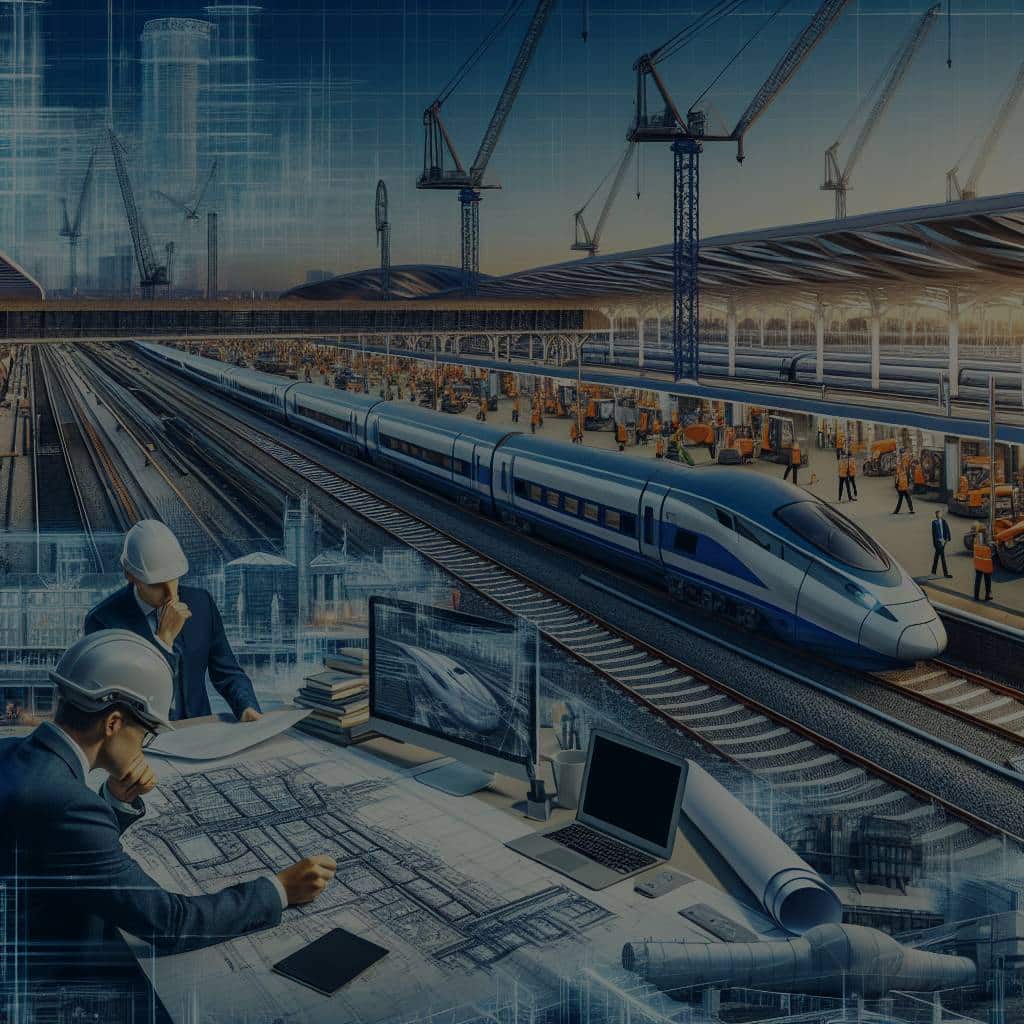What’s the Latest on the UK’s High-Speed 2 (HS2) Railway Project?

The UK’s most ambitious transport project in centuries, the High-Speed 2 (HS2) railway project, is continuing to make headway as it aims to redefine rail transport and connect the North and South of England like never before. This monumental project has garnered widespread attention, with its plans to create a high-speed railway link between London and the north of England, specifically, Manchester and Leeds. It represents a significant step forward in transport infrastructure, set to decrease travel times and boost local economies.
Updates on this impressive project are being closely followed by all demographics, from local communities who will benefit from the project, to avid travellers, the government, and those with a keen interest in the UK’s infrastructure advancements. This article provides you with the latest information on this project, its progress, and what we can expect in the future.
Cela peut vous intéresser : How to Create an Inclusive Playground for Children with Disabilities in the UK?
The Overview of HS2
For those not yet familiar with this project, let’s start with a brief overview. The High-Speed 2 (HS2) railway project is a state-of-the-art railway line projected to travel at high speeds of up to 250mph, offering a faster, more efficient mode of transport for millions of people across the UK.
The project is divided into two phases: Phase One, running from London to Birmingham, and Phase Two, connecting the West Midlands to Manchester and Leeds. The government has pledged a budget of over £100 billion to ensure the completion of this project, expected to be fully operational by 2033.
A voir aussi : Air new zealand business class: get reduced fares and more
The idea behind this initiative is to enhance connectivity between the north and south of England, reducing travel times and improving accessibility to major cities. For example, travel time from Birmingham to London will be reduced to 49 minutes, nearly half the current journey time.
Progress on Phase One: London to Birmingham
Phase one of the HS2 project, the high-speed rail line from London Euston to Birmingham, is currently under construction. This part of the project is expected to be completed by 2029.
The government has been fairly transparent with the project’s progress. This phase has seen some resistance due to environmental concerns and the displacement of local communities. However, the government has held firm in its commitment to the project, citing the significant long-term benefits to the UK’s transport infrastructure and economy.
In the heart of London, Euston station is receiving a major upgrade to accommodate the new high-speed trains. The new Euston station will encompass more platforms, a larger concourse, and improved passenger facilities. As for the city of Birmingham, the Curzon Street station is also undergoing a facelift to become a state-of-the-art high-speed rail hub.
The Latest Developments in Phase Two
Phase Two of the HS2 project is split into two parts: Phase 2a, extending from the West Midlands to Crewe, and Phase 2b, forging the path from Crewe to Manchester and from the West Midlands to Leeds.
Phase 2a is currently in the bill stage in the UK Parliament, while Phase 2b is in the consultation and design phase. Although there is still a long way to go, the government remains committed to ensuring that this project is completed on time.
The proposed HS2 Manchester Piccadilly station is set to be a transformative hub in the north. Meanwhile, the Leeds New Lane station will significantly improve the capacity and connectivity in the north of England.
The high-speed railway’s impact on northern cities like Manchester and Leeds is expected to be profound, with potential to boost local economies by improving connections with the rest of the UK.
The Financial Aspects of the HS2 Project
When it comes to finances, the HS2 railway project is one of the most expensive of its kind in the world. The UK government has committed more than £100 billion for the completion of the railway line, a figure that has raised eyebrows in some sectors due to potential cost overruns.
However, the government maintains that the investment is worthwhile, as the HS2 project is expected to deliver long-term economic and social benefits. The high-speed rail is set to create around 25,000 jobs during construction, with an additional 3,000 permanent roles once the railway is operational.
Despite budgetary concerns, the government remains committed to the financial backing of the HS2 project, viewing it as a necessary expense for improving transport, creating jobs, and enhancing the overall quality of life for the UK population.
Environmental Considerations and Addressing Concerns
The HS2 project has not been without its fair share of controversy, particularly in relation to its environmental impact. Concerns have been raised about the destruction of woodland areas, the displacement of wildlife, and the project’s carbon emissions.
The government has responded to these concerns by implementing stringent environmental standards and measures to minimise harm. For example, for every tree felled during construction, seven will be planted. Protection zones for endangered species have been established, and emission reductions are part of the project’s strategic planning.
Moreover, the government has argued that the HS2 project will reduce carbon emissions in the long term by providing a greener alternative to air and road travel. While these measures might not fully assuage all environmental concerns, they indicate a level of commitment to balancing progress with ecological responsibility.
In conclusion, the HS2 railway project promises to redefine the UK’s transport infrastructure. Despite hurdles and controversies, the project is progressing steadily, reflecting the government’s commitment to improving connectivity, boosting local economies, and making travel faster and more efficient. Stay tuned for more updates as the UK’s most ambitious railway project continues to forge ahead.
The Importance of the HS2 Rail Project to the UK Economy
The HS2 rail project is not just a transport venture; it is a significant investment in the UK’s future. Its impact extends far beyond the realm of rail travel. Despite the high cost of over £100 billion, the government firmly believes in the long-term economic benefits that will result from this project.
The HS2 railway will create approximately 25,000 jobs during the construction phase, with an additional 3,000 permanent roles once the railway is operational. Furthermore, the project is expected to stimulate economic growth in the regions it connects, particularly in the North of England. Cities like Manchester and Leeds are set to benefit from increased accessibility and improved connections with the rest of the UK.
Prime Minister Rishi Sunak and the Department of Transport have supported this vision, arguing that the HS2 project will also enhance tourism, attract investments and encourage businesses to set up in these areas.
Moreover, the HS2 railway will significantly contribute to the UK’s ambitious climate goals. By offering a high-speed, efficient alternative to air and road travel, HS2 will play a key role in decreasing carbon emissions and promoting sustainable transportation.
Conclusion: The Future of HS2 and UK Transport
The High-Speed 2 (HS2) railway project represents a pivotal moment in UK transport history. As the largest and most ambitious rail project to date, HS2 is set to revolutionise how people travel across the UK.
With Phase One well underway and the designs for Phase Two in progress, the vision of a high-speed railway linking the North and the South of England is becoming a reality. The new Euston Station in London and the Curzon Street Station in Birmingham are being transformed into state-of-the-art railway hubs, while the proposed HS2 Manchester Piccadilly and Leeds New Lane stations promise to enhance connectivity and boost the local economies.
However, this transformative project is not without challenges. Controversies related to environmental impact, displacement of local communities, and budgetary concerns continue to be addressed by the government. Despite these hurdles, the government remains committed to ensuring the project’s completion, consistently highlighting the long-term economic, social, and environmental benefits that HS2 will bring.
The HS2 project, while ambitious, represents the future of UK transport—one that is fast, efficient, and sustainable. As construction continues and new developments emerge, we can expect the landscape of UK transport to experience a significant overhaul in the near future.
